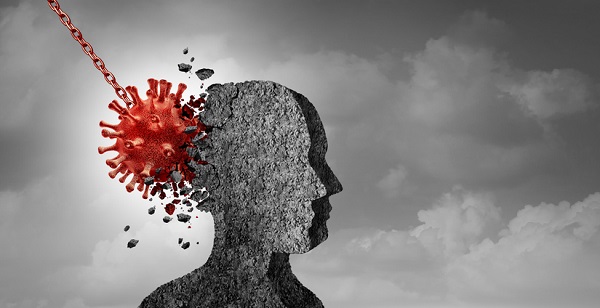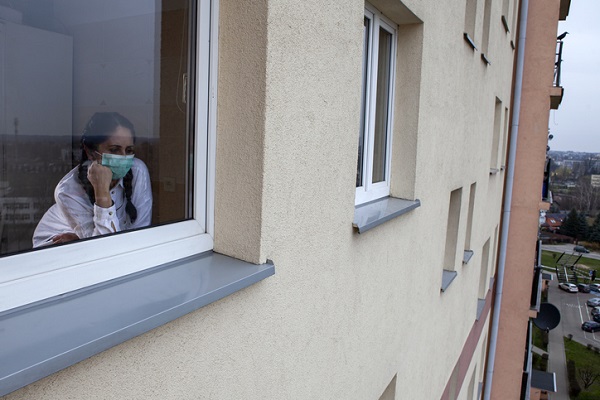
The COVID-19 pandemic and its developments have had a profound impact on many people. This can result in a number of different stress-related symptoms, including poor sleep, unhealthy eating patterns, and difficulty concentrating. Increased substance use or tobacco consumption, anxiety over one’s health or that of their family and friends, and the deterioration of a person’s mental health are all potential outcomes that can arise from the current situation (“Mental Health and Coping During COVID-19”, 2020). The ongoing crisis has led to many people experiencing feelings of anxiety, which can be further exacerbated by other difficult events such as the sudden loss of a friend or family member, or sudden unemployment (Takeuchi, 2020).
Understandably, the pandemic is a significant source of stress and anxiety for many people around the world. However, a counselling therapist can utilize many strategies to help others persevere through the remainder of the crisis. Read on to learn how counselling therapists can help clients maintain good mental health during this unprecedented crisis.

A Look at thePandemic’s Effects on Mental Health
Those who have completed their therapist training can recognize the many ways in which the pandemic can damage one’s mental health. Clients can experience chronic loneliness due to quarantine, a lack of financial security due to the sudden loss of their employment, and added stress due to frequent exposure to COVID-19-related news (Rees, 2020) (Novotney, 2019). They may also experience emotional reactions such as depression, boredom, worries about unemployment, feelings of social exclusion, and anxiety over the health and education of their children (“Taking care of your mental health during the COVID-19 pandemic”, 2020).
What a Counselling Therapist Can Do to Help
As a counselling therapist, there are a number of ways you can help clients in maintaining their mental health during the crisis. These include advising clients to take good care of themselves physically (eg. regular exercise, eating balanced meals, getting sufficient sleep); making time for relaxation; and not exposing themselves to too much news coverage about COVID-19 (“Mental Health and Coping During COVID-19”, 2020). Additionally, you can emphasize to clients the importance of unplugging from social media and electronics on occasion.

Because COVID-19 is a very novel health crisis, and one with information that is changing rapidly from day to day, clients should understand that feelings of anxiety are entirely normal.
It’s important to remind clients that it is easy and often natural to experience strong feelings of anxiety and worry, since this is an unprecedented situation for the world at large. Therefore, seeking help from a counselling therapist can help them ride the wave of the crisis more easily with each day.
Canadian counselling therapists are offering their services remotely, helping clients with issues such as not being able to visit friends or family who are hospitalized, parents who now have to homeschool their children while simultaneously working from home, and those worried for the state of their businesses and careers (Fraser, 2020).
Do you want to take therapist college programs?
Contact Rhodes Wellness College to learn more!
Works Cited
Dickerson, D. (2020, March 26). Seven tips to manage your mental health and well-being during the COVID-19 outbreak. Retrieved from https://www.nature.com/articles/d41586-020-00933-5
Forte, C. (2020, March 18). Counseling in a Time of Covid-19. Retrieved from https://www.counseling.org/news/aca-blogs/aca-member-blogs/aca-member-blogs/2020/03/18/counseling-in-a-time-of-covid-19
Friedlander, J. (2020, March 19). 9 Ways to Stay Connected During Social Distancing. Retrieved from https://www.success.com/9-ways-to-stay-connected-during-social-distancing/
Fraser, E. (2020, April 13). Therapists offer mental health care from a distance as anxiety over COVID-19 grows | CBC News. Retrieved from https://www.cbc.ca/news/canada/new-brunswick/covid-19-coronavirus-mental-health-pandemic-1.5524490
Lieberman, A., & Schroeder, J. (2020, March 30). Increasing Social Connection While “Social Distancing” – By Alicea Lieberman & Juliana Schroeder. Retrieved from https://behavioralscientist.org/increasing-social-connection-while-social-distancing-during-coronavirus/
Taking Care of Your Mental Health. Retrieved from April 29, 2022 from https://www.cdc.gov/emotional-wellbeing/features/how-right-now.htm
Mental Health and the COVID-19 Pandemic. (2020). Retrieved May 11, 2020, from https://www.camh.ca/en/health-info/mental-health-and-covid-19
Novotney, A. (2019, May). The risks of social isolation. Retrieved from https://www.apa.org/monitor/2019/05/ce-corner-isolation
Rees, V. (2020, April 1). How to take care of your mental health during the COVID-19 pandemic. Retrieved from https://www.europeanpharmaceuticalreview.com/news/116095/how-to-take-care-of-your-mental-health-during-the-covid-19-pandemic/
Takeuchi, C. (2020, April 16). COVID-19: B.C. and Canadian mental-health resources to launch or expand during pandemic. Retrieved from https://www.straight.com/covid-19-pandemic/bc-Canada-mental-health-resources-pandemic
“Taking care of your mental health during the COVID-19 pandemic”. (2020, May 10). Retrieved from https://www.canada.ca/en/public-health/services/diseases/2019-novel-coronavirus-infection/mental-health.html
White, G. (2020, March 26). A therapist’s tips on caring for your mental health during COVID-19 pandemic. Retrieved from https://www.khou.com/article/news/health/coronavirus/coronavirus-tips-for-caring-for-mental-health/285-95419eba-2c51-4afc-a2a9-2a30765bdf69









